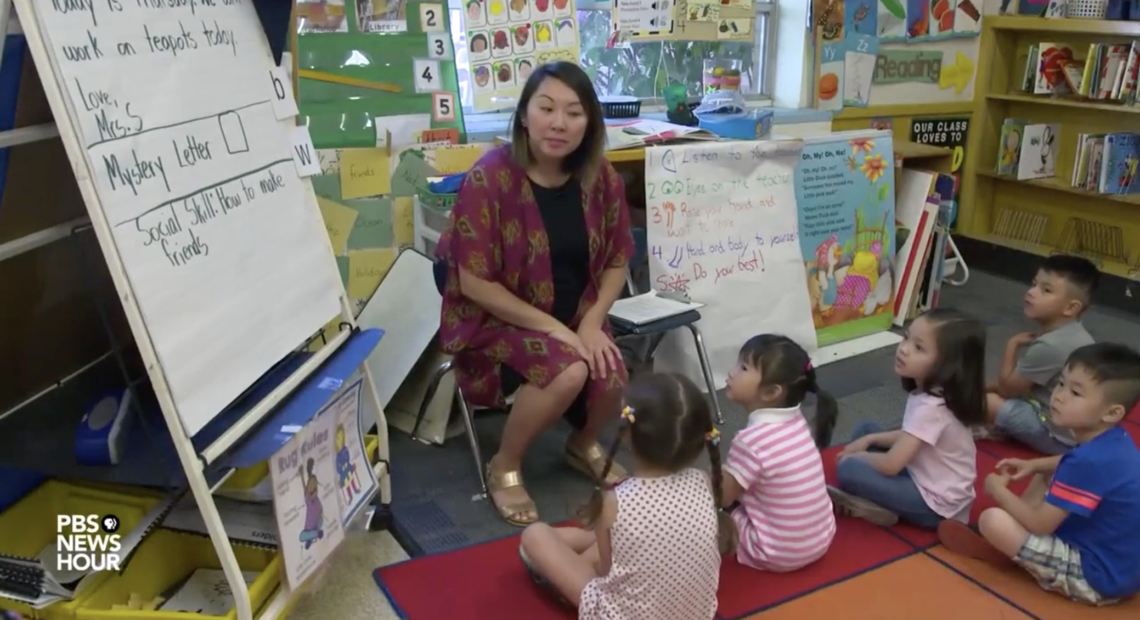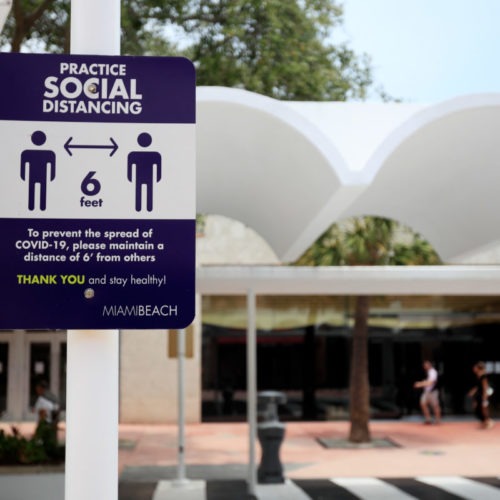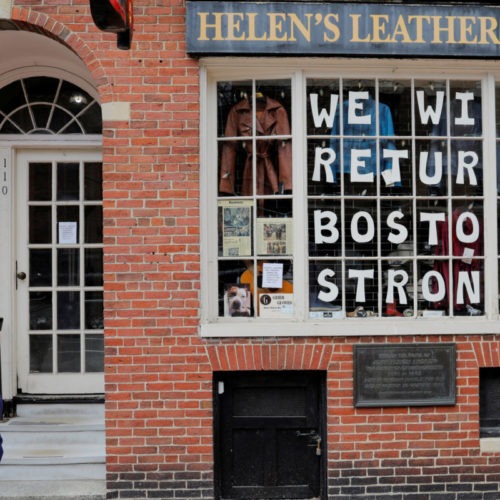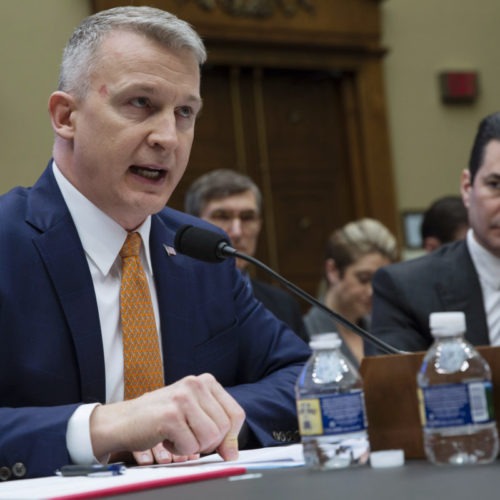Judy Woodruff:
It’s almost back to school time across the country. Of the 4 million new kindergarteners this year, nearly one-third will never have been in a preschool classroom before.
PBS special correspondent Lisa Stark, of our partner Education Week, looks at an effort in Portland, Oregon, to get those students ready. It is the latest in our weekly education series, “Making the Grade.”
Donna Shinagawa:
Good morning, kindergartners.
Lisa Stark:
This has the look and feel of a typical kindergarten class. It’s designed to get students ready for the real thing, says teacher Donna Shinagawa.
Donna Shinagawa:
It’s a preview to kindergarten, and so we try to make it as similar to kindergarten as possible.
Lisa Stark:
This summer program in Portland, Oregon, runs for three weeks, helping ease the transition to kindergarten.
Donna Shinagawa:
Put your thumb in like this, and two fingers like that.
Lisa Stark:
Some have never attended preschool. Others struggle with poverty, or their first language isn’t English. The start of kindergarten can be overwhelming for anyone, but especially for these children.
Mom Suzhen Li and her daughter Suki Chen are taking part.
Why did you think it was important for Suki to be here?
Suzhen Li:
She can meet the teachers and new classmates here first, and I think it is better for her to get used to the others.
Lisa Stark:
The program, offered in a dozen of Portland’s high poverty schools, is helping some 240 children this summer. Here at the Harrison Park School, those participating speak eight different languages, and at least a third have never been in a classroom setting.
What is your goal for the kids in this program?
Donna Shinagawa:
Just to be confident about school. To know that school is fun, and it’s a place that’s safe.
Lisa Stark:
Students learn everything from how to navigate the cafeteria, line up in the hallways, use their lockers, even how to bid parents goodbye.
Lisa Stark:
There’s also big emphasis on social skills, which studies show can be a major factor in early school success.
Donna Shinagawa:
How do we make a friend? Raise your hand if you’d like to share how do we make a friend?
Lisa Stark:
Can three weeks really make that much of a difference?
Donna Shinagawa:
Yes, it really helps build community. The parents also feel comfortable when they drop the kids off. They know the building, they know the teachers, they know the classroom, and the kids feel the same way, too.
Lisa Stark:
Suki is settling in.
Kid:
In my class, in one day, I got a sticker!
Lisa Stark:
You got a sticker!
Nancy Hauth:
We will build connections with each other, you know, the importance of coming to school and not feeling isolated.
Lisa Stark:
Nancy Hauth oversees the program in the Portland Public Schools.
Nancy Hauth:
We know that families who are coming into kindergarten without a preschool experience really struggle with the start to kindergarten, understanding expectations, and we know that they also start kindergarten with a higher level of stress.
Lisa Stark:
In a study of preschool enrollment in 36 countries, the United States ranks near the bottom, above just three other countries. In the U.S., publicly funded pre-K serves only about 44 percent of four-year-olds, and 16 percent of three-year-olds.
Education analyst Aaron Loewenberg says that’s a problem.
Aaron Loewenberg:
So, it’s important to realize that while these summer programs are definitely helpful with the transition to kindergarten, they’re not at all a replacement for high quality pre-k. High-quality pre-K program also is going to help them build the academic and social, emotional skills that will help them be successful once they get into the kindergarten classroom.
Lisa Stark:
Those in Portland agree, but in Oregon, there are limited state and federally-funded preschool slots for low-income students. So the district packs as much as it can into these three summer weeks.
Nancy Hauth:
Kindergarten is so foundational, and this is where children are learning to read. This is where children are learning how read, this is where they are learning how to interact with each other, they’re gaining huge math skills. It is the very basis of the rest of their education.
Lisa Stark:
Getting these young students excited and ready for kindergarten is only part of the summer program. Another key element is getting their parents ready as well.
Lisa Stark:
Parents gather for six mornings over the three-week program. To make it easy, there’s food, childcare, and translators.
It’s all to encourage parents to be an active part of their children’s education.
Woman:
If you guys do stuff with math.
That’s critical to student achievement.
The program allows parents to get to know each other, build their own support systems, and connects them to the school.
Here’s principal Leah Dickey.
Leah Dickey:
It really helps parents feel they have a voice and that they know answers, and they’re not just coming into this blindly. I think we forget, with parents, oftentimes have kindergartners that they have never done this before, many of them have never done this, and it’s just as scary for them as it is for their students.
Suzhen Li:
I was a teacher in China before I move here, so I know that school and the family, is a very good bridge to get it together. We need to know each other to help the kids to grow.
Woman:
Today, we’re going to talk about the school calendar.
Lisa Stark:
The school staff stresses attendance, how critical it is to get students to school every day and on time. Nationally, about one in ten kindergartners is chronically absent. It’s a big concern, and in Oregon, the numbers are even worse.
Beth Tarasawa:
You know, ultimately, we’re trying to change behaviors in both parents and in kids.
Lisa Stark:
Researcher Beth Tarasawa has analyzed Portland’s early transition program, and says students who attend are less likely to be absent, not just in kindergarten, but through third grade.
Beth Tarasawa:
So when you’re seeing promising results in the very population that we’re trying to reach, that we’ve struggled to, historically, in our school systems, traditionally our public. That is something that is very noteworthy.
Lisa Stark:
She also looked at early reading skills and found mixed results. In most years, summer program participants showed more growth than their classmates. In other years, they did not.
Beth Tarasawa:
We can’t expect a three-week program to come in and eradicate what, you know, years of poverty and trauma, potentially, in these kids’ lives, have exposed them to. But those first few years, without this intervention, could look a lot different for these same kids.
Lisa Stark:
Many districts make efforts to ease the entry into kindergarten — maybe an open house, or meet the teacher event — but few districts have as extensive a program as Portland’s. At about $14,000 a school, supporters say it’s a relatively affordable way to help families hit the ground running on that first day of kindergarten.
Donna Shinagawa:
See if you can find any more E’s.
Lisa Stark:
For the PBS NewsHour and Education Week, I’m Lisa Stark, in Portland, Oregon.



















